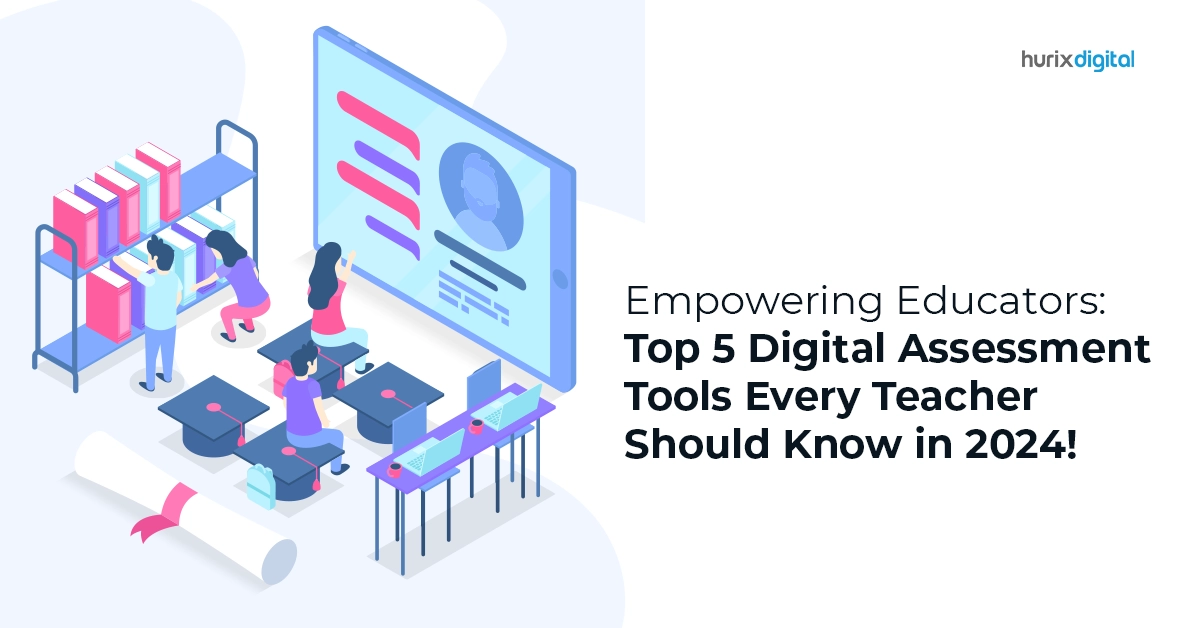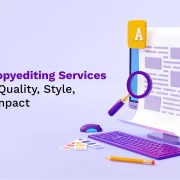
Empowering Educators: Top 5 Digital Assessment Tools Every Teacher Should Know in 2024!
With the educational landscape shifting significantly towards the ed-tech space, the need for a host of digital tools becomes paramount.
This is due to the massive shift in online learning that we’ve witnessed over the years, augmented only by the effects of the pandemic. The online learning industry is projected to be valued at more than $370 billion by 2026.
This statistic, coupled with the increase in the number of students taking some form of classes online, has resulted in the need for digital assessment tools. If you, as a teacher, are looking to incorporate the use of such software to streamline your assessment needs, this guide is the only resource you’ll need.
Table of Contents:
The 5 Best Digital Assessment Tools for Teachers in 2024
In this section, we look at five of the best student assessment platforms for 2024, along with their key highlights.
1. Dictera
Dictera is a powerful eLearning authoring tool that allows teachers to create high-quality assessments and analyze their results via detailed insights.
It uses a combination of Artificial Intelligence and Machine Learning to help automate the assessment creation process, analyze results, and thus offer students a personalized approach to help improve their academic performance.
Teachers can use Dictera to create a wide variety of assessment types with question formats ranging from Multiple Choice Questions, open-ended questions, and even performance tasks. Some of the other key benefits on offer include:
- The ability to seamlessly collaborate in real-time, share actionable insights, and more.
- Define roles for each individual on the platform and seamlessly assign tasks.
- The ability to establish milestones via an intuitive dashboard.
- Access to a wide range of data-driven insights and more.
This eLearning authoring software is also ideal for authors and subject matter experts, allowing them to create high-quality content via an intuitive platform.
Also Read: Dictera AI Assessment Generators vs. Traditional Testing Methods: Which One is Right for You?
2. Kahoot
Kahoot is a game-based learning platform that offers teachers the ability to create engaging assessments and quizzes with a wide variety of questions. These range from Multiple Choice Questions, true or false statements, and open-ended questions.
It comes with a movie app that also comes in handy as a remote when students play educational games in a group. One of this app’s key benefits is that it allows teachers to create quizzes from scratch or use an existing template to build on. This helps save time and offers teachers immense flexibility based on their workload.
Aside from creating assessments, Kahoot offers a wide range of educational content that teachers can sift through using filters. These can then be used to aid the student learning experience across a variety of subjects and topics.
3. Mentimeter
Mentimeter is an assessment evaluation platform that teachers can use to create high-quality digital assessments.
However, aside from being used in the educational sphere, it’s also widely used in various other industries and settings. It offers various tools, such as live polling and quizzes, performance tracing, and interactive word clouds, along with a host of powerful presentation tools.
What’s more, it offers seamless integration with a host of other tools, including Microsoft Teams and Zoom, making it easier for teachers to connect with their students digitally.
Like the other platforms mentioned above, it offers teachers the ability to use a range of question formats, including Multiple Choice Questions, True or False statements, and open-ended questions. Additionally, it also offers a wide range of data that allows teachers to track student progress and offer targeted support to help with any potential weaknesses.
4. Google Forms and Quizzes
Google Forms and Quizzes are among the most well-known platforms that teachers can use to create assessments. From using it to create Multiple Choice Questions, short answers, and even auto-graded questions, it offers educators a great deal of flexibility in creating assessments.
This is a great option if you are already making use of the Google ecosystem, as it can seamlessly integrate with the company’s other offerings, from Docs to Sheets, Slides, and more.
The tool also offers real-time analytics, allowing teachers to monitor individual progress and the performance of a class as a whole. This gives them greater insights into students’ strengths, weaknesses, and areas of improvement, allowing teachers to create targeted plans to help improve topical knowledge and performance.
This tool goes a long way in saving teachers key time, especially with benefits such as offering immediate feedback to students and deriving real-time data and insights.
5. Socrative
Socrative is a digital formative assessment tool for teachers that allows them to create and deliver assessments in real time.
Specifically designed for K-12 classrooms and higher education institutions, it offers teachers the ability to create assessments with a wide variety of question types. These include a mix of Multiple Choice Questions, short-answer questions, and True or False questions.
This tool aims to make the classroom environment a lot more engaging and dynamic, increasing student participation and, as a result, their ability to meet their academic targets better. Socrative is a great option for institutions that already make great use of technology and have teachers and students who are both comparatively more tech-savvy.
One of the key benefits is that it focuses on engaging students in collaborative learning rather than time-based activities and assessments, thereby allowing each individual to understand concepts at their own pace.
In addition, the data-driven insights allow teachers to track student and classroom performance, allowing them to devote more time to offering personalized learning.
Also Read: Top 10 Advantages of Using Generative AI for Assessments in Schools
In Conclusion
The eLearning market today is saturated with a wide variety of digital assessment tools for teachers, which can make the process of choosing the right one for your institution a challenge. This is where you must keep your institute’s requirements in mind and ensure that the tool you choose offers all the necessary features and can seamlessly integrate with your existing eLearning tech stack.
Among the tools mentioned above, Dictera is the most powerful tool to create high-quality assessments. It uses a combination of AI and ML, making it among the best tools to create assessments on every subject possible and across a wide range of formats in a collaborative manner.
This saves teachers a great deal of time that they can then spend on offering students personalized attention to help them meet their learning outcomes.
Visit Dictera and experience how it can transform the assessment creation process for you in 2024!

Vice President – Content Transformation at HurixDigital, based in Chennai. With nearly 20 years in digital content, he leads large-scale transformation and accessibility initiatives. A frequent presenter (e.g., London Book Fair 2025), Gokulnath drives AI-powered publishing solutions and inclusive content strategies for global clients




